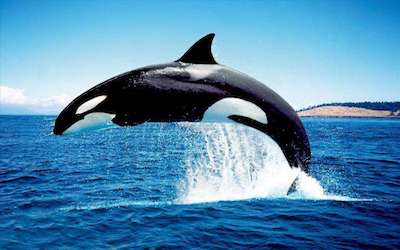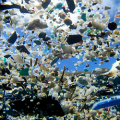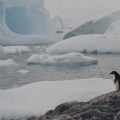PTE考生目前最大的问题之一就是练习题缺乏。除了有限的基本官方书(PLUS,Testbuilder, OG)之外就没有题了。很多英语基础不是很扎实的同学很难找到练习材料。悉尼文波雅思PTE培训学校专门为澳洲,尤其是悉尼、墨尔本的PTE考生准备了适合PTE听力阅读练习的科学60秒。各位PTE同学可以练习PTE听力中的summarise spoken text和PTE口语中的retell lecture,PTE听力口语-科学60秒-Frosty Moss练习记笔记技巧和复述。废话少说,下面开始:
听力内容:
60秒科学节目(SSS)是科学美国人网站的一套广播栏目,英文名称:Scientific American – 60 Second Science,节目内容以科学报道为主,节目仅一分钟的时间,主要对当今的科学技术新发展作以简明、通俗的介绍,对于科学的发展如何影响人们的生活环境、健康状况及科学技术,提供了大量简明易懂的阐释。
This is Scientific American — 60-Second Science. I’m Karen Hopkin.
Got a minute?
Menopause marks the end of a female’s babymaking era. And not just for humans. Female killer whales go through menopause, too. And a new study finds that they might get pushed into menopause by their up-and-coming daughters. Those findings are floated in the journal Current Biology.
Female orcas usually quit popping out calves between the ages of 30 and 40. Yet they can live to be more than 90 years old. One granny orca, who recently dropped from researchers’ radar and is (sadly) presumed to have passed, was thought to be 105.
But why would a female whale stick around for so long after she’s done adding to the gene pool? One theory is that it pays to keep nanna around so she can help care for the younger members of her family group. Indeed, matriarchal orcas do spend a lot of time nurturing their descendants.
But that doesn’t explain why the old gals should stop having babies of their own. To dive deeper into that issue, researchers examined 43 years’ worth of demographic data on two populations of killer whales in the Pacific Northwest. The records tracked the ages and genealogical relationships of the resident orcas, including 525 calves.
Turns out that when mothers and daughters breed at the same time, the calves of the elder females—for reasons yet unclear—are almost twice as likely to die by the age of 15 than those of the younger moms. Which the researchers say could account for why the grande dames ultimately give up on reproduction and coast through their golden years doting on the gargantuan grandkids.
Thanks for listening for Scientific American — 60-Second Science Science. I’m Karen Hopkin.
墨尔本悉尼文波PTE原创首发
更多精彩请持续关注微信wenbo_tv3。





